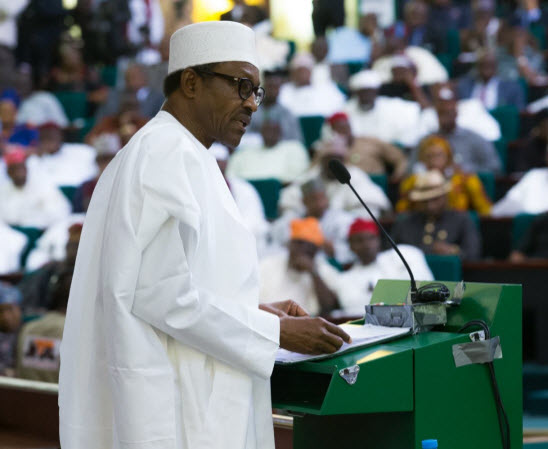There are no products in your shopping cart.
| 0 Items | £0.00 |


PRESIDENT Muhammadu Buhari failed to appear before the National Assembly today despite promising to do so last week to answer questions about what his administration is doing to curb the growing spare of insecurity across the country.
Late last month, Boko Haram beheaded 43 farmers in Zabarmari, in Jere Local Government Area of Borno State as retribution for them cooperating with the military authorities. This cold-blooded murder has sparked widespread anger across Nigeria and last week, a debate on the matter got very heated in the House of Representatives.
Following heated arguments and an executive session later, the House resolved to invite the president to answer questions and a formal invitation was subsequently dispatched to him. President Buhari had responded saying that he will appear before a joint session of the National Assembly today but on Monday, Mallam Abubakar Malami, Nigeria's attorney-general Mallam Abubakar Malami, said security matters remained the exclusive preserve of the executive arm of government.
It now appears that Mallam Malami succeeded in pressing President Buhari not to honour the National Assembly invitation. Yesterday, it emerged that pressure was being mounted on President Buhari especially by state governors, to shun the House of Representatives, which now appears to have borne fruit.
According to the attorney-general, the National Assembly has no constitutional power to envisage or contemplate a situation where the president would be summoned on the operational use of the Nigerian armed forces. He added that President Buhari had been able to effectively tackle insecurity and recover lands that were hitherto occupied by Boko Haram.
Mallam Malami said: “The management and control of the security sector is exclusively vested in the president including the power to determine the operational use of the armed forces. An invitation that seeks to put the operational use of the armed forces to a public interrogation is indeed taking the constitutional rights of law-making beyond bounds.
“As the commander-in-chief, the president has exclusivity on security and has confidentiality over security. These powers and rights he does not share, so, by summoning the president on national security operational matters, the House of Representative operated outside constitutional bounds as the president’s exclusivity of constitutional confidentiality investiture within the context of the constitution remains sacrosanct.”